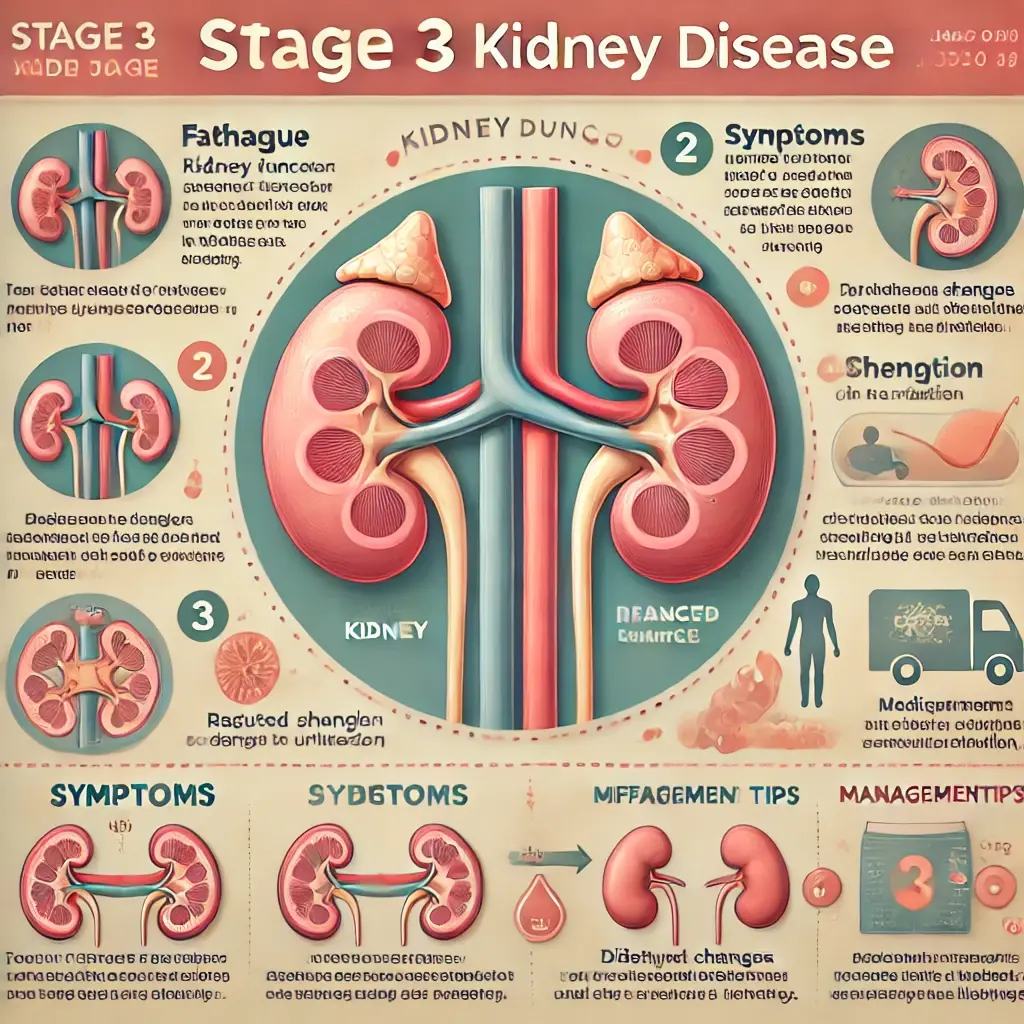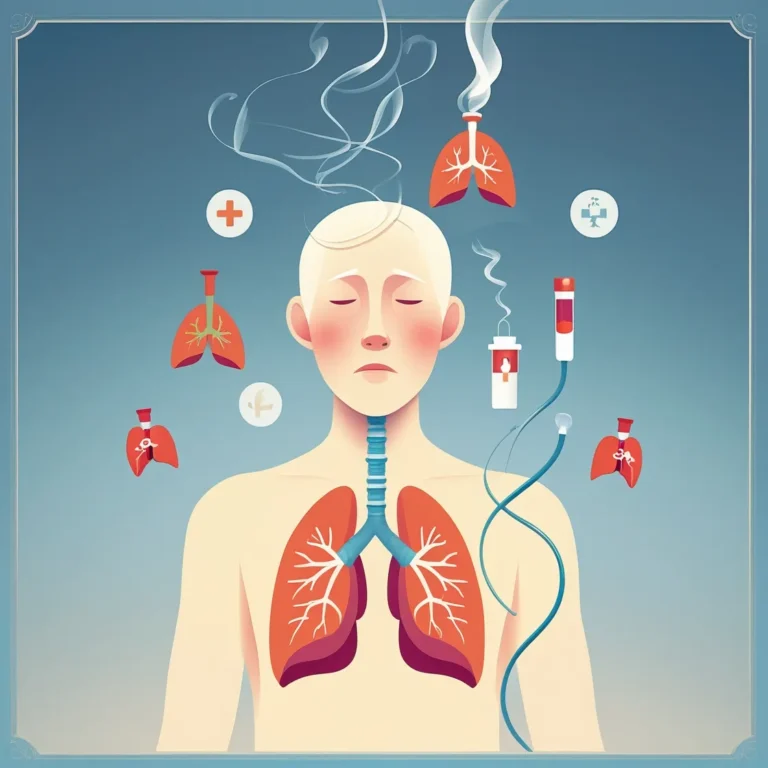Stage 3 kidney disease in elderly
Stage 3 kidney disease in elderly is a severe condition in which your kidneys slowly start to fail. This leads to a build-up of harmful elements in your blood that would otherwise be filtered out through your kidneys. If kidney disease progresses, you would eventually need to get dialysis or a kidney transplant to remain alive.

Stage 3 kidney disease means that the kidney’s function has been cut by half, and most patients experience ancillary problems like high blood pressure or bone difficulties.
Impact of Stage 3 Kidney Disease on Your Health
Depending on how far your kidney disease has progressed, you will fit into one of the five stages of kidney disease. These stages are measured by your glomerular filtration rate or your GFR. Having stage 3 kidney disease means that you will have a GFR between 30 and 59.
Ultimately, if stage 3 kidney disease goes untreated or progresses further, you will enter into stage 4 kidney disease. Stage 4 kidney disease is severe, as are its symptoms. It is also the last stage of kidney disease before kidney failure; at this point, you will need to talk to your doctor to prepare for kidney failure.
If your kidneys fail, you will either need to have dialysis or a kidney transplant. Dialysis is a treatment that will clean your blood. You will need to think about which kind of dialysis you will want, as there are different types available. The other option, a kidney transplant, is when you find a donor who gives you a healthy kidney from their body. If you get a transplant, you will not need to do dialysis.
Treatment of Kidney Disease Stage 3
Once you are diagnosed with stage 3 kidney disease, there is no way to treat the damage that has already been done to your kidneys. The following steps for your treatment have to do with treating the issues caused by decreased kidney functioning and preventing further damage.
These treatments include:
- Keeping regular appointments with your doctor, neurologist, or any other specialist you may need to see
- Managing your blood sugar (if you have diabetes)
- Avoiding medications that further damage your kidneys
- Monitoring and managing your blood pressure
- Changing your diet to limit protein, high-cholesterol foods, salt, and potassium
- Not smoking
- Exercising and staying active
- Monitoring your weight to remain healthy
- Attending to anemia (if you have it)
Additionally, you may need to take medications. Which medications and even if you need to take them entirely depends on the cause of your kidney disease. Some of these medications could be:
- An angiotensin-converting enzyme (ACE) inhibitor which lowers your blood pressure
- An angiotensin receptor blocker (ARB) which would also lower your blood pressure
- Diuretics to help flush out waste
- Any type of medication that could help lower your cholesterol
- Erythropoietin which helps build red blood cells for people who struggle with anemia
- Vitamin D to strengthen the bones and avoid bone loss
- A phosphate binder (if you are struggling to eliminate phosphate)

Stage 3 Kidney Disease in the Elderly: Causes, Symptoms, and Management
Understanding Stage 3 Kidney Disease
Stage 3 kidney disease is a moderate form of chronic kidney disease (CKD) where the kidneys function at 30-59% of their normal capacity. It is further divided into:
- Stage 3A (GFR: 45-59 mL/min)
- Stage 3B (GFR: 30-44 mL/min)
At this stage, the kidneys can still filter waste but are unable to function at full capacity, leading to gradual toxin buildup in the blood. Early detection and proper management can slow progression and prevent complications.
Causes of Stage 3 Kidney Disease in the Elderly
The most common causes of CKD in elderly individuals include:
- Diabetes – High blood sugar levels damage the kidneys over time.
- Hypertension (High Blood Pressure) – Increased pressure damages kidney blood vessels.
- Aging – Kidney function naturally declines with age.
- Heart Disease – Cardiovascular issues can reduce kidney function.
- Urinary Tract Issues – Chronic infections or obstructions may contribute to CKD.
- Polycystic Kidney Disease – A genetic disorder that causes cysts to develop in the kidneys.
Symptoms of Stage 3 Kidney Disease
Many elderly individuals may not notice symptoms in the early stages. However, as the disease progresses, they may experience:
- Fatigue and weakness
- Swelling in hands, feet, or face (fluid retention)
- Changes in urination (frequent or reduced urine output)
- High blood pressure
- Muscle cramps
- Trouble concentrating or memory problems
- Sleep disturbances
Complications of Stage 3 Kidney Disease
If left unmanaged, CKD can lead to:
- Anemia – Low red blood cell count causing fatigue.
- Bone Disease – Weakened bones due to poor calcium and phosphorus regulation.
- Heart Disease – Increased risk of heart attacks or strokes.
- High Potassium Levels (Hyperkalemia) – Can cause irregular heartbeats.
Management and Treatment
While CKD cannot be reversed, lifestyle changes and medical treatments can slow its progression:
- Dietary Changes
- Reduce sodium intake to manage blood pressure.
- Limit potassium-rich foods (bananas, oranges, potatoes).
- Reduce phosphorus intake (dairy, processed foods).
- Increase fiber and choose lean proteins.
- Medications
- Blood pressure medications (ACE inhibitors, ARBs).
- Medications to manage diabetes or cholesterol.
- Phosphate binders for bone health.
- Lifestyle Adjustments
- Stay hydrated but avoid excess fluid intake if advised by a doctor.
- Engage in light exercise to maintain cardiovascular health.
- Quit smoking and limit alcohol intake.
What is chronic kidney disease?
Kidneys play a large role in our overall health. They filter blood and remove toxins from the body by putting them into the urine. They balance electrolytes and help regulate blood pressure. Your kidneys are also important in maintaining healthy bones and regulating the production of red blood cells.
Chronic kidney disease happens when the kidneys’ filtering function is decreased. It can sometimes lead to a gradual further loss of function. Kidney disease is categorized into stages. Stage 3 means that a person’s kidneys are filtering the blood at between 30 to 60 percent of their normal capacity. People with stage 5 chronic kidney disease – the most severe stage – have less than 15 percent of their original kidney function, and often require dialysis three or more times a week to clear their blood of toxins. At this stage, kidney transplant is the best treatment option for patients who are healthy enough.
Who is most at risk to develop chronic kidney disease?
The most common causes of chronic kidney disease and eventually kidney failure are diabetes and high blood pressure. Other less common causes are autoimmune diseases, polycystic kidney disease, and other inherited diseases. If you have diabetes or high blood pressure, make sure you are controlling them. Talk to your doctor about your risk for developing chronic kidney disease – and get screened for chronic kidney disease. Many insurance providers require a referral for a kidney evaluation. Contact your primary care physician first to discuss appropriate next steps.
How do I know if I have it?
Chronic kidney disease often starts to develop without you noticing it. Symptoms may appear in stage 3, but most often not until stage 4 or 5. High blood pressure is typically one of the earliest signs. People who do experience symptoms may notice fatigue, swelling around the eyes or ankles, trouble sleeping, restless legs, or poor appetite. Some people also develop a strange or metallic taste in their mouth.
Fortunately, a simple blood test helps us measure kidney function and diagnose kidney disease. Given that there are no symptoms in early kidney disease, getting tested once a year is very important – especially if you have high blood pressure or diabetes. Testing for kidney disease is easy. It involves a routine blood chemistry test and a urine test to look for protein or blood.






